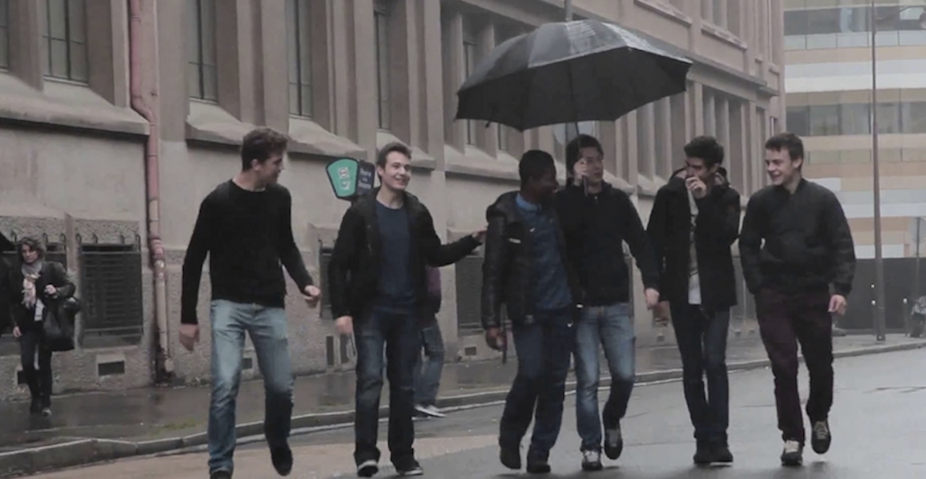A social universe is an extraordinarily complex thing. At its own level, a mind-brain is equally complex. When a mind is behaving within in a group, patterns emerge – patterns that the mind can hardly grasp. These complex forms are self-organising, and emerge on their own and for adaptive purposes. They are perfectly fitted to the context in which they are born and each is unique. There is a particular feeling of being part of the pattern, just as there is a particular feeling of being excluded from the whole. Consider this scene.
A group of kids taking turns on a bicycle in the midst of a playground. Never have they been told to do this, nor when, how or with whom. They just know when the time is right, and it feels great. Contemplate these children and their organisation, feel the implicit laws of their social universe. They are learning as a group. The scene is taken from the film Comme un Loup (“Like a Wolf” in English), which provides a new take on the place of school in the world of youth, and the place of youth in the world of school.
Comme un Loup is a documentary about school and its psychological and behavioural consequences. The film asks several important questions, which cannot be answered through traditional testing methods. To what degree can school be said to occupy the living world of young people? And do young people genuinely exist as individuals in the midst of educational planning? To put it another way, to what degree do pupils belong to or in school?
Pupils would be the first to agree that centring on the pupil is not what our current school system does. In fact, the needs and wishes of pupils are increasingly being pushed further into the background in the administrative striving toward higher ‘standards’ and a broader range of skills and competences. Behind this lies an unassailable narrative whose moral is unequivocal: success at school is the key to prosperity in life. What are the consequences here? What the costs for pupils and, ultimately, for our societies?
The purpose of school is to create the human resources necessary to sustain culture in the future – and, incidentally, to fund the old age of those currently deciding the fate of children. But if we choose to see school from the point of view of the children themselves, as human beings growing, building the forces necessary to launch themselves on their trajectory of life, creating their identity and learning to share spheres of belonging, then school becomes something quite different. It ceases to be a factory producing workers for the future and becomes a period of time, a realm of possibilities, a playground, an arena for life, a stable ground where ideas and talents can grow.
School as a sphere of opportunities
Children do not go to school to be transformed into some kind of resource bank, they go to school to grow, to enjoy, to interact, to experiment and to learn about the mysteries of life. They go to school to discover what is not already known, the vastness both of self and of world. We chose not to show any school in the film, since, as far as young people are concerned, they simply seem a world apart – a sphere in which only the few belong.
School teaches us to be proud or ashamed, that we are a success or a failure – and that knowledge never leaves us. To know that you are a failure is to know you do not belong in the society that brands you so. When schools send failures into the world, they are surely creating not resources but problems for the future. The three characters of this film all frequented the same middle school before their trajectories diverged. Whether through boxing or politics, each has found a sphere of belonging outside of the schooling system; all except the main character of the film, Yaya who happens to be a success at school.
Yaya is torn between worlds, between school and family, family and friends, friends from the neighbourhood and friends from school. The tragic hero in the play of meritocracy, Yaya is the individual success hiding a collective failure. Its many spheres of belonging conflict under the authority of ever more precise evaluations, which permeates all aspects of the boy’s life. When discussing lovers, the first thing Yaya and his friends do is rate them on scale of one to ten. Their lives are predicated and determined on the values and thought processes they have learned through school.

In an increasingly globalised, transient and confusing world, many children – especially those who have been displaced – are seeking to find their identity in a sphere of belonging – in the circles of family, friendship, neighbourhood and school. How can harmony be achieved among spheres of belonging? Among the thousands of virtual relations and fragile and fluid affiliations, is there still hope for a unified culture? Can school provide a centre for these circles, a place of collective learning – or does it create outcasts at the periphery of society?


